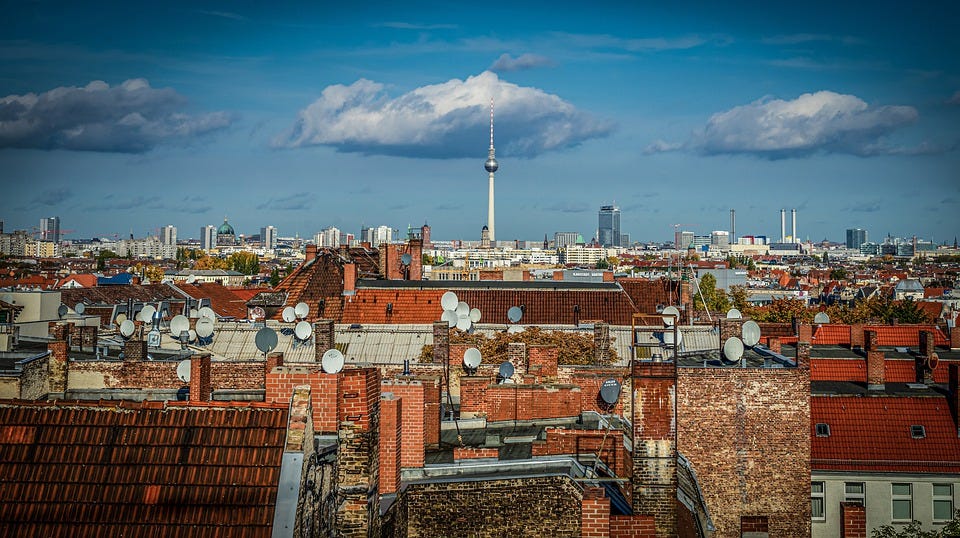
Germany has got itself into a right old mess over Russian gas and Russian aggression. There has been equivocation about supporting Ukraine by the Putinversteher (‘Putin understanders’) of the German educated classes, such as the 28 prominent intellectuals who signed a letter urging the Chancellor to stop deliveries of heavy arms to Ukraine. Such views are not the only ones in German society but they are widespread. This sclerotic response is in part due to the recent past; around the turn of the century, the country experienced a sustained and, given the vagaries of German history, perhaps understandable period of liberal self-congratulation; many Germans are now struggling to adapt to a new normal.
The British media are reporting on these problems with just a pinch too much schadenfreude, highlighting Germany’s energy dependence on Russia and disparaging the whole Merkel era as a failure given its reluctance to confront Putin. In my view, this is an overcorrection, motivated in part by the UK’s own struggles; nobody visiting Germany and the UK today would have a hard time telling which is the wealthier country. Germany is a comfortable target for the UK because, although the countries are culturally similar, Germans are currently getting big things wrong that we are getting right, such as unity in the face of Ukrainian aggression and not relying on the goodwill of Vladimir Putin to heat our homes.
Yet the increasingly negative portrait of Germany in our media shades into caricature. It is in part a response to the fantasy of the country that the British liberal-left has indulged for some years. This is the Germany which ‘does it better’, where every service runs smoothly and every progressive wish is satisfied. The Germany I lived in for a decade from the mid-2000s was indeed forward-thinking and gay-friendly but it was also a place where my German landlady referred to the Turkish-German inhabitants of our neighbourhood as ‘Untermenschen’ – using the actual Nazi word. It was a place both prepared to welcome refugees and which also saw spontaneous and large-scale public demonstrations against the ‘Islamization of the West’. Even on less contentious issues, the German model marries weaknesses and strengths; while the country has excellent apprenticeship possibilities for young people, it’s also a place where it’s difficult to retrain in adulthood – this is before we mention how the German school system effectively sorts people into three distinct streams for life.
The caricature of Germany as a European paradise is only possible because British people have next to no knowledge of the German language, and as such experience the culture mediated only through the sentiments of German speakers of English. As you can imagine, these ‘Germany explainers’ usually present the country with some of its rougher edges smoothed off – that is, after all, a more saleable pitch.
Perhaps, because Germany resembles the UK in many ways, it is destined to play the role as a mirror of the UK’s own fortunes, functioning either as example or warning dependent on how things are going at home. But it would benefit us to regard Germany with more dispassion, precisely because of that similarity. What are Germany’s weaknesses? What are Germany’s strengths? Doing this, we will arrive at a more realistic picture of the country and what we can learn from it. At the moment, our vacillation between extremes is robbing us of a realistic understanding of actual Germany, and, in its current position, Britain certainly needs to develop a better understanding of its European partners.
Dare I suggest than when considering Germany we need to be a little more German or as their language has it ‘sachlich’ (factual). The singer of the famous German band ‘Element of Crime’, Sven Regener, was asked years ago if he thought the US was the best country for a musician. To paraphrase from memory, he replied: ‘Of course. But if fridge manufacturing were my thing, I’d feel the same about Germany.’



